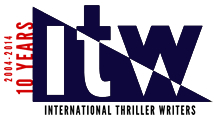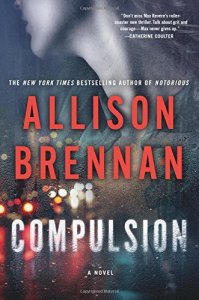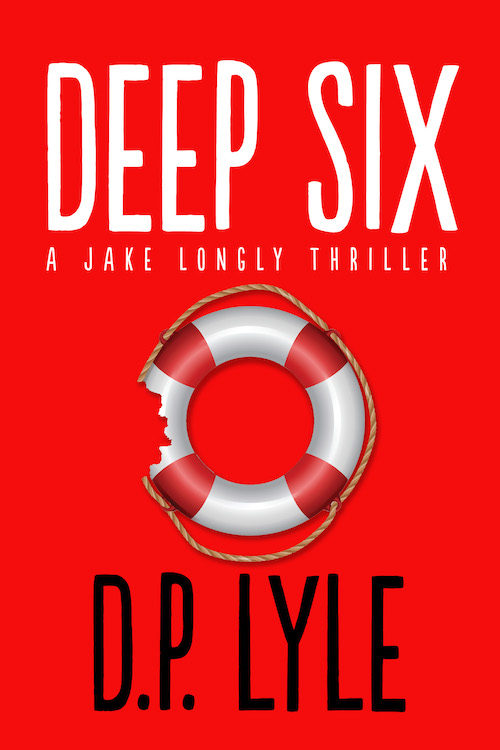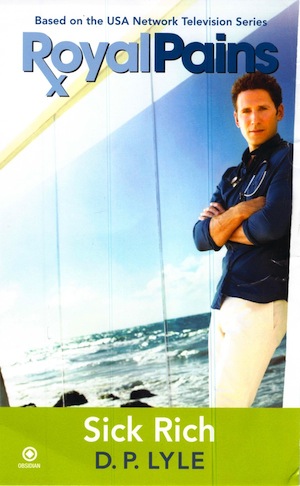
This year CraftFest will be special. We have some very talented instructors who will help you write your own best-seller. Join us. It will be fun and will kick your writing up a notch or two.
Don’t miss ThrillerFest, CraftFest, PitchFest, and Master CraftFest this year.
Sign up today: http://thrillerfest.com
CRAFTFEST 2015 SCHEDULE:
Wednesday, July 8 | 8:30 am – 9:20 am
Tom Rob Smith – WEAVING RESEARCH INTO FICTION
Description: Exploring the delicate balance of research when writing fiction, how research can inspire, enrich and also imperil. A lesson on how to weave research into the fabric of your novel.
Allison Leotta – CRIMINAL MISTAKES THAT CAN KILL YOUR STORY
Description: The top 10 things crime writers get wrong — and how to fix them. A practical, how-to guide on crafting a story infused with authentic details
Daniel Palmer – THRILLER WRITING FROM A TO Z
Description: How to begin putting your novel of suspense together; how to proceed; how to end. This presentation will be a how-to, step-by-step- guide to molding your thriller.
Steve Berry – THE SIX C’S OF STORY STRUCTURE: It’s Not Everything – It’s Absolutely Everything
Description: None listed
Wednesday, July 8 | 9:30 am – 10:20 am
James Scott Bell – WRITE YOUR NOVEL FROM THE MIDDLE: A Powerful New Approach For Plotters, Pantsers, And Everyone In Between
Description: Based on the #1 bestselling writing book by James Scott Bell, this workshop will teach you a unique method for crafting a powerful, unified novel by way of the “mirror moment” — a crucial beat that happens right in the middle of great and enduring stories. Using examples from books and movies, Bell will show you how to discover the true heart of your book, and how that knowledge brings everything into focus. Best of all, this method can be used at any time during the writing process, whether you like to outline or just wing it as you go.
Michael Rose – INTERPOL 101
Description: In this class, Michael E. Rose, author of the Frank Delaney thriller series and former Chief of Communications for Interpol, will take you inside this well known but poorly-understood police organization. Rose will bust some of the myths and misconceptions about Interpol, and help you get things factually right if you refer to Interpol in your writing.
Dale Brown – ELEMENTS OF PLOT-BASED NOVELS
Description: Are you one of those authors who believe novels are about character, and character is why readers buy novels? Perennial best-selling author Dale Brown tells why plot-driven novels have a place in our world, how to put them together, and how to avoid pitfalls that can turn your characters into cardboard cut-outs.
Steve Berry – WHO’S TELLING THE STORY AND WHAT ARE THEY SAYING: POV And Dialogue
Description: None listed
Wednesday, July 8 | 10:30 am – 11:20 am
Carla Buckley & Jenny Milchman – CROSS-GENRE: What To Do When Your Thriller Is Also A…
Description: More and more books today exist outside of a single genre, or blend elements of multiple categories. Come learn from internationally bestselling author Carla Buckley and Mary Higgins Clark award-winning author Jenny Milchman talk about what to do if you find yourself with a hybrid on your hands and how–even though such books can be harder to publish and market–they often become the breakout books on the bestseller lists.
Dr. Mike Tabor – TAKING A BITE OUT OF CRIME: How Dental Identification Helps Solve Forensic Mysteries
Description: How did forensics contribute in solving the identification mysteries at the World Trade Center? Or how exactly was Ted Bundy convicted? Or what does Lee Harvey Oswald’s death and MLK assassin James Earl Ray have in common? Find out these and other ideas for your next thriller!
David Corbett – THE CHARACTER OF CRIME: Creating Web In Crime, Mystery/Detective And Thriller Fiction
Description: Award-winning crime novelist David Corbett will guide students in exploring the key roles that make crime fiction work, with specific focus on the specific demands of the three major sub-genres of crime fiction—mystery/detective, crime, and thriller— and an emphasis on maintaining dramatic tension, creating moral complexity, and avoiding cliché.
David Morrell – IT’S ALL DEPENDS ON YOUR POINT OF VIEW
Description: ITW co-founder and Thriller Master David Morrell describes the various narrative viewpoints. Analyzing their pros and cons, David shows that without a properly chosen viewpoint, a story can’t come to life.
Wednesday, July 8 | 1:00 pm – 1:50 pm
Gayle Lynds – THE 8 SECRETS TO CREATING A BESTSELLING THRILLER
Description: What is the real foundation of thriller writing? Join Gayle Lynds and learn how to understand what you’re doing in your thriller, how to make it work for you, and how to weave together each aspect of writing – characters, plot, voice, story, etc.
Richard Krevolin – ADAPTING YOUR THRILLER FOR THE BIG SCREEN
Description: Ever think that your thriller would make a great movie? Well, take this course with script doctor and screenwriter Rich Krevolin (author of how to adapt anything into a screenplay) and learn how to transform your thriller into a script you can sell to Hollywood.
D.P. Lyle, M.D. – MEDICAL SCHOOL FOR WRITERS
Description: Does your character suffer from a heart attack, asthma, or diabetes? Does he or she receive a gunshot or stab wound, maybe an auto accident or broken leg? How are these diagnosed and treated? What are the complications and possible outcomes? Go to “Med School” with DP Lyle and learn how medicine really works from the street to the ER to ICU and OR.
Donald Maass – THE THRILL IS GONE
Description: Most thriller manuscripts are not genuinely terrifying. Learn how to use the universal secret ingredient that makes any type of thriller truly scary. Hint: It’s not what you think.
Wednesday, July 8 | 2:00 pm – 2:50 pm
Brenda Novak – EMOTION: The Heart Of The Novel
Description: When it comes to a good book, a reader might not recall the details of a certain plot or the physical characteristics of the various characters, but he will remember how the story made him feel. Citing several examples from a variety of works, Brenda talks about how to create an emotional connection with the reader and amplify its effectiveness. She also takes a look at the “icebergs” that can easily creep in and sink a story’s emotional impact.
Scott Silverii & Liliana Hart – REAL LIFE CASTLE: Writers And Cops Working Together
Description: Join New York Times and USA Today Bestselling Author, Liliana Hart, and Chief of Police, Scott Silverii, Ph.D., as they discuss the importance of getting the facts straight in fiction, and how to cultivate a good working relationship between the writer and law enforcement.
Bruce DeSilva – YOUR SETTING – IT’S MORE THAN JUST A PLACE
Description: The setting for your novel is more than just the stage on which your story takes place. Done right, it affects everything from your characters’ world view to the actions they can and cannot take.
Anne Perry – PUTTING YOUR HERO IN A TIGHT SPOT
Description: With reference to moral and emotional dilemmas, it is usually hard to torture your hero, but it works well both for tension and for exploring beliefs, character etc, They don’t say, horns of a dilemma, for no reason.
Wednesday, July 8 | 3:00 pm – 3:50 pm
Peter James – KEEPING THE READ AND THE WRITER IN SUSPSENSE
Description: Peter James will talk on the art of establishing and maintaining suspense all the way through a mystery novel.
John Gilstrap & Chris Grall – DESTRUCTION AND CHAOS: Bullets, Bombs And Rockets Demystified, Part and Part II
Description: Join two experts and learn how the weapons and explosives really work
Carla Norton – PSST! SECRETS TO WRITING GREAT DIALOGUE
Description: Whether you’re writing a scene of subtle seduction, or ratcheting up suspense with an accusatory rant, your characters want to speak. In this workshop, you’ll learn ways to loosen their tongues and create distinctive voices while moving your plot forward. We’ll explore how sensory detail can enable your protagonist to “read minds” without straining credulity. You’ll discover techniques for turning mundane conversation into punchy dialogue. We’ll discuss the importance of point of view, word choice, and sentence structure. And you’ll see how questions, interruptions, and subtext can pick up the pace and breathe life into a scene. Dialogue samples will be provided, but bring your own short sections to work on as well. If you want to rid your manuscript of extraneous chitchat and dull exposition, this workshop is for you.
Greg Iles – ZEN AND THE ART OF WRITING BESTSELLERS
Description: Why you need to stop trying so hard. Stop writing and start thinking. “Passive processing” is the key to writing novels that the reader falls into like Alice through the looking glass. Writing is the mechanical part of this business. If you were born to write, then it’s in the brain and heart where the real work is done. Learn to get out of your own way, and why every writing “problem” contains its own solution. Finally, embrace the fact that every successful writer is writing about himself—or herself—regardless of genre or even the narrator’s gender.
Wednesday, July 8 | 4:00 pm – 4:50 pm
Andrew Gross – OUTLINING OR NOT? How Much To Plan Out Before You Even Start Page One
Description: None listed
Robert Rotenberg – FIRST WORD, FIRST SENTENCE, FIRST PARAGRAPH
Description: The start of your novel is one the most important things if you want to write bestselling book. Robert Rotenberg’s seminar will be a hands-on tutorial, filled with examples, explanations and a close examination of your own opening words to make the first step in your manuscript the best it can be.
Jon Land – GETTING FINISHED: How To Go From A Great Idea To A Finished Book In Three Steps
Description: Negotiating the Beginning, Middle and End and how to move from one to the other.
Thursday, July 9 | 8:00 am – 8:50 am
Mark Billingham – THE RULES OF CRIME FICTION: What Are They And How Best To Ignore Them
Description: The “rules” of writing crime fiction have changed over the years. This session will cover why these rules are important to know, even if you choose to ignore them, and how, in the end, there are no bloody rules at all.
Gary Birken – HOW TO WRITE A SCENE OF MEDICAL SUSPENSE THAT DOESN’T COME OFF YOUR WORD PROCESSOR D.O.A.
Description: The class would help the attendee sharpen her or his medical scene writing skills whether that scene is part of a classic medical thriller or any other work of suspense. Some of the topics would include: seamless ways of imparting medical information through dialogue, not tiresome narration; injecting authenticity, excitement and tension into life and death and other gripping medical situations; creating unique but plausible murder/suicide scenarios; Familiarizing the attendee with resources available to acquire accurate, interesting, and, even, offbeat medical facts, and, finally, how to select your medical consultants.
Steven James – HOW TO WRITE YOURSELF OUT OF A CORNER
Description: Here’s the traditional advice: “Be careful that you don’t write yourself into a corner.” Well, first I’d like to debunk that axiom and show the advantages of writing yourself into a corner in the first place, in fact why it’s important that you do so: It will (1) allow for twists that readers never see coming, (2) stretch you as a writer, (3) increase reader engagement, (4) add mystery and suspense as readers try to figure out how all the plot threads are going to play out, and (5) help you avoid cookie-cutter stories. However, the meat of the presentation will be examining five practical steps for writing yourself out of the corners you might find yourself in: (1) Narrow your focus and then widen your viewfinder, (2) Let context reveal its secrets to you, (3) Find the twist that’s waiting in what you’ve already written, (4) Reseed your story to remove coincidences, (5) Look at the back of the fabric rather than the front.
Lorenzo Carcaterra – TO KILL OR NOT TO KILL: When To Do Away With A Character And The Reasons Why?
Description: None listed.
Thursday, July 9 | 9:00 am – 9:50 am
Dedi Felman – STORY DEVELOPMENT: From Book To Television
Description: Ever wondered why some books are quickly snapped up and made into successful television show while others are quickly passed over? Mystified by what kinds of stories and concepts studio execs and showrunners look for? Wish you could adapt your own novel for television as successfully as George R. R. Martin? If you’ve always dreamed of having your book adapted for TV and having a good experience with the process, it helps to understand the fundamentals of the craft of television writing.
This workshop is for anyone who wants to learn the secrets of substance, structure, character, style, and principles of story construction used by top writers and executives from cable to network television.
Geoff Symon – SCENE OF THE CRIME: Perpetrating & Investigating Your Fictional Felonies
Description: When you need your book to have a clue. This course gives you the basic tools to investigate your own fictional scenes. Geoff Symon shares his 20-years experience as a Forensic Investigator in a class perfect for authors of every popular genre. We’ll hit the forensic basics, talk about evidence and determine what’s important to your story vs. what’s important to an investigator. We’ll wrap by going over one of Geoff’s actual scenes!
Allison Brennan – THE VILLIAN’S JOURNEY
Description: Once you understand that the villain is the hero of his own journey, you can create complex and believable bad guys worthy of your hero.
Charlaine Harris – REMEMBER ME
Description: Charlaine Harris will talk about secondary characters who stick with the reader, and how to construct them. Sure, your protagonist is the most important character, but don’t ignore the people who surround her/him.


































